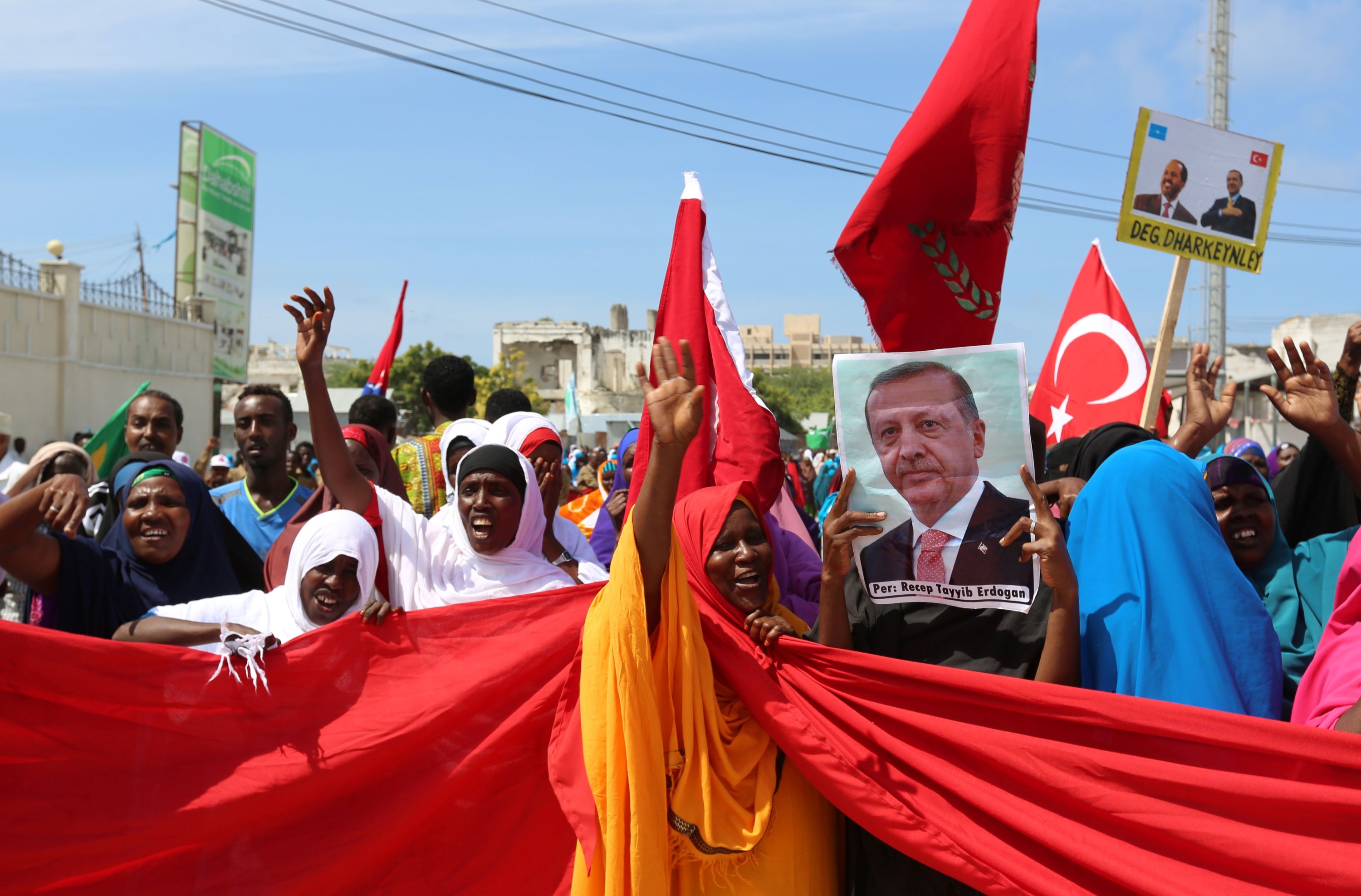
Türkiye is moving to broaden its reach into Africa by relying on its defense projects and extensive trade network, which are made possible by the absence of colonial history that weighs on Europe, according to diplomatic sources. Speaking ahead of a ministerial meeting at the weekend in Djibouti, a diplomatic source in Ankara said Türkiye was a "sought-after partner" in Africa thanks to its "non-colonial" past. Top diplomat Hakan Fidan will be in the tiny Horn of Africa nation on Nov.
2 and 3 for the meeting between Türkiye and 14 African countries in a body that was set up in 2008. The meeting will evaluate outcomes from a previous conference held in 2021 and explore potential avenues for deeper collaboration. The meeting will draw representatives from Mauritania, Angola, the Republic of Congo, Ghana, the Union of Comoros, South Sudan, Chad, Djibouti, Equatorial Guinea, Libya, Nigeria, Zimbabwe, Zambia and Egypt.
Officials from the Turkish Foreign Ministry have indicated that a joint statement and the "2022-2024 Joint Implementation Report" will be adopted at the end of the conference. The Djibouti meeting comes as Türkiye enhances its presence and influence across the African continent. Over recent years, Ankara has significantly increased trade with African nations, which has surged nearly eight-fold, and has provided diplomatic and military support to various countries.
"Türkiye's biggest advantage is its non-colonial past. When anti-imperialist leaders are looking for new partners, they think first and foremost of us," the source said. As a sign of its growing influence, Ankara has since taken on the role of mediator in talks between Ethiopia and Somalia, who have been locked in a feud over access to the ocean since June.
And with a significant level of regional mistrust towards "both major powers and the Gulf states," Türkiye was "best-suited" to lead such negotiations as "no other actor had the confidence of both parties," the source said. Despite difficulties, talks between Ethiopia and Somalia were moving forward "at their own pace." Such confidence was born of a well-established Turkish foothold in Somalia for the past two decades, where it has invested in agriculture and built the airport in Mogadishu, a military training center, schools and a hospital.
Last week, the Turkish exploration vessel the Oruç Reis arrived in the Somali capital to start searching for oil and natural gas under an agreement that allowed it to drill in three areas, each measuring roughly 5,000 square kilometers (1,930 square miles). Similar exploration agreements for oil and gas, as well as mining, were also signed between Türkiye and Niger in July and October. Turkish mining company MTA has three gold mines in the Sahel, which are also rich in uranium.
"There is also the potential for oil and natural gas," said Turkish Energy Minister Alparslan Bayraktar this summer. The mines are protected by the Niger military, and Türkiye is widely regarded as a "security partner" by many countries in the region. Over the years, Ankara has signed military cooperation agreements with more than 25 African countries, supplying them with Turkish-made weapons, including drones, helicopters, training aircraft and armored vehicles.
And its hostile stance towards West-imposed sanctions on the military regimes of Niger, Burkina Faso and Mali has also helped its ties with these nations. Türkiye is also the fourth largest arms supplier to sub-Saharan Africa, according to a study published by the Stockholm International Peace Research Institute (SIPRI) in March. Ankara is involved in training the armed forces in many African countries, according to Turkish diplomatic sources who refused to specify which nations were involved.
"In this way, we're also contributing to the fight against terrorism," the sources said, stressing the need to "simultaneously invest in economic development," particularly in the Sahel. "West Africa is a region dominated by security problems," said Senegalese President Bassirou Diomaye Faye on meeting his Turkish counterpart Recep Tayyip Erdoğan in Ankara, saying it was "necessary to strengthen defense cooperation." Turkish construction companies, which are heavily involved in infrastructure projects like developing a $6.
5 billion railway network in Tanzania, are also helping strengthen their nation's reputation. Beyond political brokering in Eastern Africa, Ankara accumulated soft power through education, media and its shared religion with many African Muslim countries. The Turkish Maarif Foundation has established a network of 140 schools and institutions, serving 17,000 students, while approximately 60,000 African students are currently enrolled in Turkish educational institutions.
The Turkish Presidency of Religious Affairs has intensified its humanitarian efforts and support for mosques and religious education throughout the region, further enhancing Türkiye's standing in Africa. Moreover, Turkish Airlines (THY) has made significant strides in connecting Africa to the world, currently serving 62 destinations across the continent. It notably became the first airline to resume operations in Mogadishu in 2012 after the airport was rebuilt with Turkish assistance.
Turkish Airlines also crisscrosses the continent, flying to 62 destinations in Africa. In 2012, it became the first airline to return to Mogadishu, whose airport was rebuilt with Turkish funding and assistance. In the past two decades, Turkish-African bilateral trade volume sprang from $5 billion (TL 170 billion) to $30 billion; Turkish diplomatic missions climbed from 12 to 44, and African missions in Ankara rose to 38.
Trade between Türkiye and African countries in 2022 is set to exceed $40 billion. Türkiye often emphasizes the “sincerity” of its presence on the continent compared to that of Europeans, who bear the legacy of colonialism. It has also proven a reliable partner in the construction and infrastructure sectors.
.














